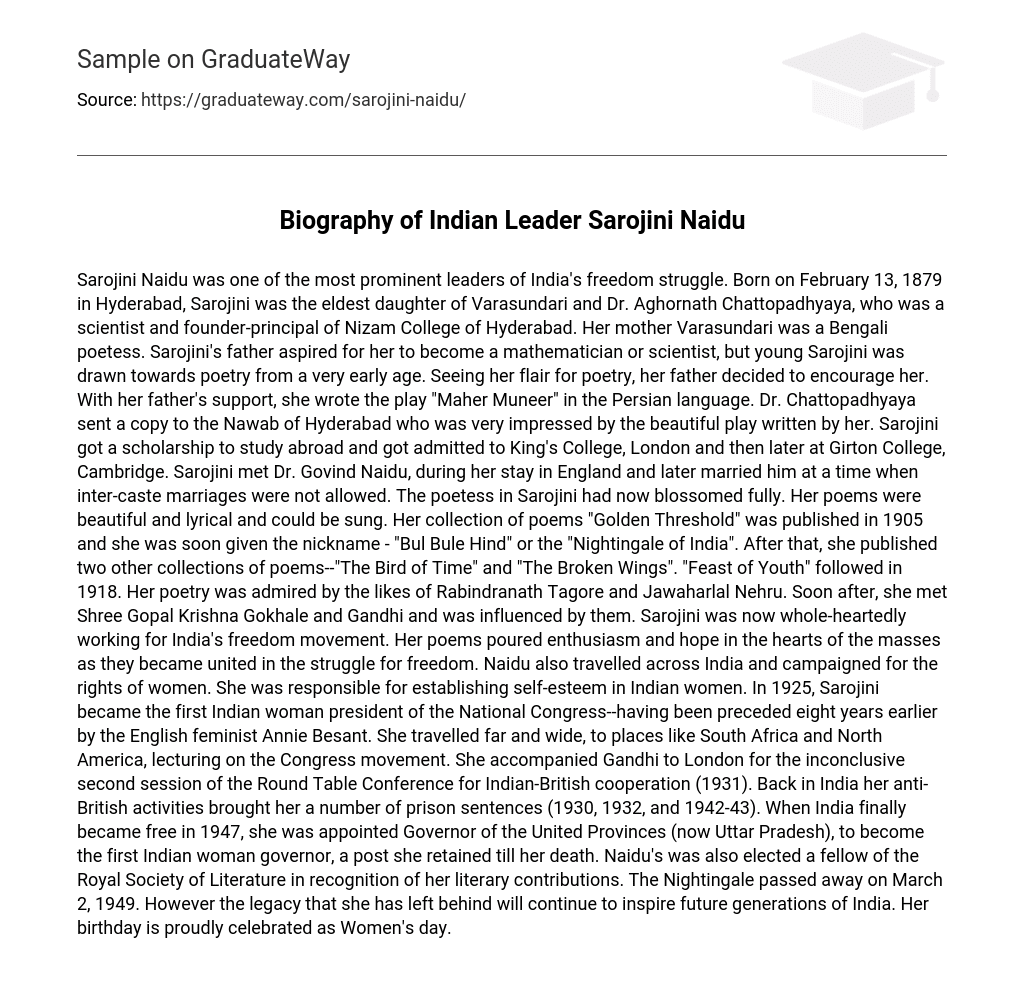Sarojini Naidu, born on February 13, 1879 in Hyderabad, India, became a prominent leader during the country’s fight for independence. Her father, Dr. Aghornath Chattopadhyaya, was a scientist and founder-principal of Nizam College of Hyderabad. Meanwhile, her mother Varasundari was a Bengali poetess. Despite her father’s desire for her to pursue mathematics or science, Sarojini showed a strong affinity for poetry from an early age. This led her father to encourage and foster her talent.
With the support of her father, Sarojini wrote the play “Maher Muneer” in Persian. Dr. Chattopadhyaya sent a copy to the Nawab of Hyderabad, who was deeply impressed by the exquisite play. Sarojini received a scholarship and was accepted into King’s College, London, and later Girton College, Cambridge.
While in England, Sarojini encountered and subsequently wedded Dr. Govind Naidu, defying the prohibition on inter-caste marriages at that time. This marriage provided an environment for Sarojini’s poetic ability to flourish, resulting in the creation of exquisite and melodic poems suitable even for musical rendition. In 1905, her compilation of poems entitled “Golden Threshold” was released, earning her the moniker “Bul Bule Hind” or the “Nightingale of India”. Following this success, she went on to publish two more collections known as “The Bird of Time” and “The Broken Wings”.
“Feast of Youth” was published in 1918 and earned accolades from renowned individuals like Rabindranath Tagore and Jawaharlal Nehru. Sarojini Naidu’s encounters with Shree Gopal Krishna Gokhale and Gandhi had a profound impact on her. These experiences fueled her dedication to India’s freedom movement, as she utilized her poetry to inspire and instill hope in the masses during their collective struggle for independence. Furthermore, she embarked on extensive travels across India, advocating for women’s rights.
Sarojini succeeded Annie Besant as the first Indian woman president of the National Congress after an eight-year tenure. She extensively traveled, delivering speeches on the Congress movement in various locations including South Africa and North America. In 1931, she accompanied Gandhi to London for the inconclusive second session of the Round Table Conference. Upon her return to India, she faced multiple imprisonments between 1930 and 1943 due to her anti-British activities. Following India’s independence in 1947, she became the Governor of the United Provinces, marking her as the first Indian woman governor. Sarojini held this position until her demise.
Naidu received the honor of being elected a fellow of the Royal Society of Literature for her literary contributions. Despite her passing on March 2, 1949, her lasting legacy will continue to serve as inspiration for future generations in India. Her birthday is now proudly celebrated as Women’s Day.





